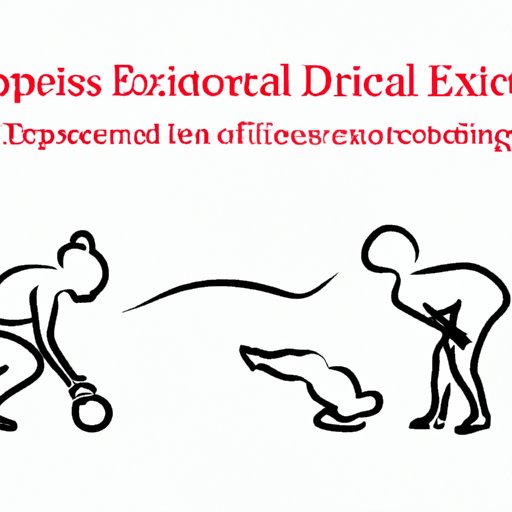
Introduction
Pregnancy is a beautiful time in a woman’s life filled with excitement and anticipation for the arrival of a new baby. However, it is also a time where women experience many changes in their bodies both physically and emotionally. One of the questions that many women have is whether they should exercise during pregnancy and what effect it has on their growing babies.
Definition of the problem and its prevalence
Pregnant women may have concerns about the safety of engaging in physical activity during pregnancy. A survey conducted by the Centers for Disease Control and Prevention (CDC) found that only 20% of women meet the recommended guidelines for physical activity during pregnancy.
Importance of addressing the problem
It is important to address these concerns and provide expectant mothers with information on exercising safely during pregnancy. Engaging in regular physical activity can have numerous benefits for both the mother and the fetus. The American College of Obstetricians and Gynecologists recommends that women with uncomplicated pregnancies engage in physical activity throughout pregnancy.

Exercise and Fetal Development: Understanding the Relationship
How exercise affects fetal development
Regular exercise during pregnancy can promote healthy fetal development by improving blood flow, oxygenation, and nutrition to the developing fetus.
Types of exercises that pregnant women can do
Pregnant women can engage in low-impact aerobic exercises such as walking, swimming, and cycling. Resistance and strength training exercises can also be done if modifications are made to prevent excessive strain on the body.
Guidelines for safe exercising during pregnancy
Before starting any exercise routine during pregnancy, it is important for women to consult with their healthcare provider to ensure that it is safe for them and their developing babies. Other tips for safe exercising during pregnancy include staying hydrated, avoiding excessive heat, wearing comfortable clothing and supportive shoes, and starting with low-intensity exercises and gradually increasing intensity.
The Benefits and Risks of Exercise During Pregnancy
Benefits of exercising during pregnancy for both the mother and the fetus
Exercising during pregnancy has been shown to have many benefits for both the mother and the fetus. These benefits include improving maternal and fetal health by reducing the risk of gestational diabetes, high blood pressure, and excessive weight gain. Regular exercise during pregnancy can also improve mood, sleep, and energy levels for the mother. There is also evidence to suggest that fetuses of mothers who exercise during pregnancy are more resilient and have lower levels of stress.
Risks of exercising during pregnancy
While exercise during pregnancy can have many benefits, there are potential risks that must be taken into consideration. These risks include premature labor, fetal distress, and a greater risk of injury. It is essential to avoid activities that carry a high risk of injury, such as contact sports, horseback riding, skiing, and scuba diving.
When to avoid exercise during pregnancy
Women with certain medical conditions, such as heart disease, placenta previa, or a history of premature labor, should avoid exercise during pregnancy. It is also crucial to listen to your body and seek medical advice if you experience any discomfort, bleeding, or other concerning symptoms during exercise.
The Science Behind Fetal Responses to Exercise
How fetal heart rate and oxygenation respond to maternal exercise
Research has shown that fetal heart rate and oxygenation change in response to maternal exercise. Fetal heart rate typically increases during maternal physical activity, but returns to baseline levels shortly after exercise. Fetal oxygenation is also increased during maternal exercise.
The role of hormones in fetal and maternal responses to exercise
Hormones such as cortisol, adrenaline, and norepinephrine play a role in fetal and maternal responses to exercise. Research has shown that maternal exercise can lead to increased levels of these hormones, which can have a positive effect on fetal development.
Methods used to study fetal responses to exercise
Researchers use a variety of methods to study fetal responses to exercise, including fetal monitoring, ultrasonography, and noninvasive methods such as Doppler ultrasound.
The Impact of Maternal Exercise on Fetal Health
Evidence on the effects of maternal exercise on fetal growth and development
Studies have shown that maternal exercise can have a positive impact on fetal growth and development. Babies born to mothers who exercise regularly during pregnancy have been found to have better birth weights, smaller waist circumferences, and less body fat percentage than babies born to sedentary mothers.
Relationship between maternal health and fetal well-being
Maternal health is essential to the well-being of the developing fetus. Regular exercise during pregnancy can help improve maternal health and reduce the risk of complications such as gestational diabetes, pre-eclampsia, and preterm labor.
Implications for fetal long-term health
There is also evidence to suggest that maternal exercise during pregnancy can have long-term implications for fetal health. Babies born to mothers who exercise regularly during pregnancy have been found to have lower blood pressure and a reduced risk of chronic diseases such as obesity and type 2 diabetes later in life.
Fetal Movement During Physical Activity: What You Need to Know
Description of normal fetal movement patterns
Fetal movement is a sign of a healthy pregnancy and occurs frequently during the day and night. Normal fetal movements include kicks, twists, and turns, and this movement is often more pronounced during periods of physical activity.
How fetal movements can be affected by maternal exercise
Fetal movements can be affected by maternal exercise, and it is common for babies to be more active during exercise sessions. However, if you experience a decrease in fetal movement during exercise or any other time, you should seek medical attention immediately.
When to seek medical advice about fetal movements during pregnancy
If you notice a decrease in fetal movement during pregnancy or if you have any concerns about fetal movement, it is essential to contact your healthcare provider immediately. Abnormal fetal movement patterns can be a sign of fetal distress or other complications.
Maximizing the Benefits of Exercise for You and Your Growing Baby
Tips for safe and effective exercising during pregnancy
To maximize the benefits of exercise during pregnancy, it is essential to exercise safely and effectively. Tips for safe and effective exercising during pregnancy include staying hydrated, wearing comfortable and supportive clothing, listening to your body, and avoiding exercises that put excessive stress on your body.
How to monitor your exercise intensity and duration
Monitoring your exercise intensity and duration can help you stay safe during pregnancy. A good rule of thumb is to exercise at an intensity that allows you to talk while exercising without getting out of breath. You should also keep exercise sessions to no more than 30 minutes at a time and avoid exercising in extreme heat or cold.
Advice on adapting exercises to the different stages of pregnancy
It is also important to adapt exercises to the different stages of pregnancy. In the first trimester, women can continue with their pre-pregnancy exercise routines, but should avoid exercises that involve lying on their backs. In the second and third trimesters, women should avoid exercises that involve twisting or putting strain on the abdomen and avoid high-impact exercises.
Safe and Effective Prenatal Workouts: A Guide to Protecting Your Fetus
Common mistakes to avoid while exercising during pregnancy
Common mistakes to avoid while exercising during pregnancy include overexerting yourself, not staying hydrated, and pushing yourself too hard. It is essential to listen to your body and make adjustments to your exercise routine as necessary.
Exercises to avoid during pregnancy
Exercises to avoid during pregnancy include high-impact exercises such as running, jumping, and high-intensity interval training. Women should also avoid exercises that put excessive strain on the body, such as heavy lifting and contact sports.
Fitness classes suitable for pregnant women
There are various fitness classes suitable for pregnant women, including prenatal yoga, Pilates, and low-impact aerobics classes. It is important to let the instructor know that you are pregnant and to make modifications to exercises as necessary.
Conclusion
Exercising during pregnancy can have numerous benefits for both the mother and the fetus, but it is essential to do so safely. By following the guidelines outlined in this article, women can exercise safely and effectively during pregnancy and potentially improve long-term fetal health. However, it is essential to seek medical advice before starting any exercise program during pregnancy.
Final advice for pregnant women looking to exercise safely and effectively
To exercise safely and effectively during pregnancy, it is essential to listen to your body, seek medical advice if necessary, and follow the guidelines outlined in this article. By doing so, you can potentially improve your health and the health of your growing baby.
Importance of seeking medical advice before starting an exercise program during pregnancy
It is crucial to seek medical advice before starting any exercise program during pregnancy. Your healthcare provider can guide you on what exercises are safe for you and your developing baby and provide you with individualized recommendations based on your health and medical history.




